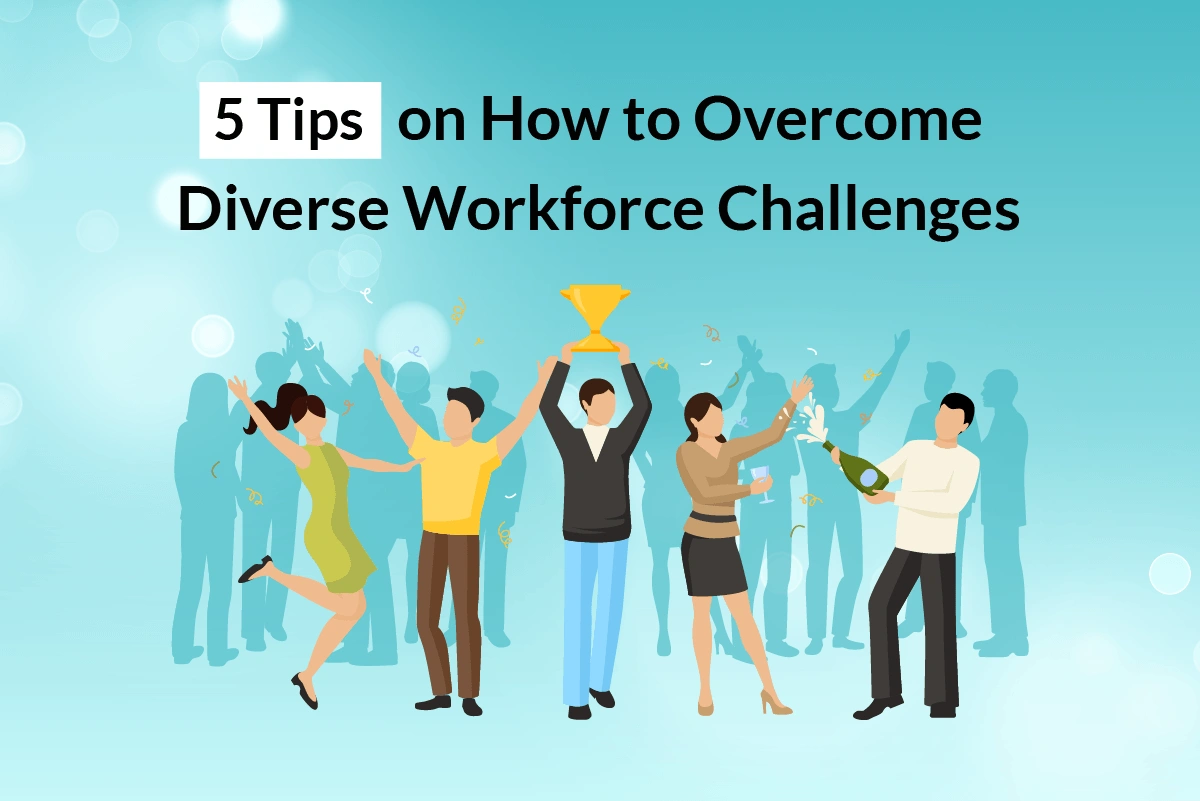As workplaces become increasingly diverse, it’s important for businesses to understand and address the unique challenges that come with managing a diverse workforce. While diversity can bring many benefits, such as increased innovation and creativity, tensions and misunderstandings can occur if not managed effectively.
In this blog, we’ll explore some of the common challenges that businesses face when managing a diverse workforce, such as communication barriers, cultural differences, and bias.
Why is a Diverse Workforce Important?
There are many reasons why it’s important to have a team from broad backgrounds:
- Bringing together people with different backgrounds, perspectives, and ideas, can lead to increased innovation, creativity, and problem-solving.
- It helps to ensure that a business is able to connect with and serve diverse customer bases, which is particularly important in today’s global marketplace.
- Studies have shown that companies with more diverse workforces tend to perform better financially than those with less diverse workforces.
Understanding the Challenges of a Diverse Workforce
Managing a diverse workforce can present several challenges, such as:
Stereotyping and Bias
Stereotyping involves making assumptions about individuals based on their perceived characteristics, such as their race, gender, or age. Bias, on the other hand, involves a tendency to favor or discriminate against individuals based on these characteristics. Both of these issues can lead to misunderstandings, tensions, and a lack of inclusivity in the workplace.

Lack of Inclusivity
Another diverse workforce challenge is a lack of inclusivity. This can manifest in many ways, such as exclusion from important meetings, lack of access to resources, or subtle forms of discrimination. When employees feel excluded or undervalued, it can lead to decreased morale, lower productivity, and higher rates of turnover.
Communication Barriers
In a vibrant workplace, effective communication is key. However, language differences, cultural norms, and communication styles can sometimes create barriers. These barriers can lead to misunderstandings, frustration, and decreased productivity.
Resistance to Change
Change can be daunting, especially when it comes to implementing new policies or practices to promote diversity and inclusion in the workplace. Some employees may resist these changes due to fear of the unknown or a sense of loss of control. This resistance can be particularly challenging when it comes from employees in leadership positions or those who hold significant influence within the organization.
Strategies for Overcoming Diverse Workforce Challenges
Organizations can create a more inclusive and productive workplace by understanding the unique needs and perspectives of diverse employees. Here are some effective strategies for doing so:
Embrace and Celebrate Diversity
To overcome the challenges of a diverse workforce, businesses should embrace and celebrate diversity as a strength rather than a weakness. Businesses can do this by creating opportunities for employees to share their cultural backgrounds, traditions, and experiences with one another. This can include celebrating cultural holidays, organizing diversity and inclusion events, and creating employee resource groups.

Encouraging Cross-Cultural Communication
Encouraging cross-cultural communication by promoting open and respectful dialogue among employees from different cultural backgrounds.
One way to accomplish this is to provide employees with training and resources to help them understand cultural differences and learn how to communicate and collaborate effectively with colleagues from diverse backgrounds. Businesses can also provide employees with opportunities to work on cross-cultural teams, which can help break down barriers and promote understanding.
Furthermore, by encouraging employees to ask questions and learn from one another, businesses can foster a culture of curiosity and openness.
Provide Training and Education
Empower your employees with the tools they need to thrive in a diverse and inclusive workplace! Imagine a workforce that is skilled, knowledgeable, and equipped to embrace diversity and inclusion with confidence. By offering comprehensive training programs, businesses can unlock the full potential of their employees and create a culture that fosters inclusivity and success.
Whether it’s in-house training programs, engaging workshops, informative seminars, or cutting-edge online learning modules, there are endless ways to provide your employees with the education they need to thrive. Keep your team ahead of the curve by offering ongoing education and resources that keep them up-to-date with the latest trends and best practices in diversity and inclusion.
Create a Culture of Inclusion

Creating a vibrant culture of inclusion is not just a buzzword, but a strategic imperative for businesses looking to thrive in today’s diverse workforce.
One powerful approach is to actively promote diversity and inclusion at all levels of the organization. From leadership roles to entry-level positions, businesses can embrace diversity as a strength and create opportunities for individuals of all backgrounds to contribute and excel. By fostering a culture that celebrates diversity, businesses can unlock the full potential of their workforce and harness the power of diverse perspectives.
Promote Diversity in Recruitment and Hiring
This includes actively seeking out and recruiting candidates from a variety of backgrounds, as well as ensuring that the hiring process is free of bias and discrimination. Businesses can accomplish this by incorporating diversity and inclusion goals into their recruitment strategies and ensuring that hiring managers receive unconscious bias training.
They can also collaborate with other organizations to broaden their candidate pool and use blind resume screening to remove identifying information that could lead to bias. Businesses can build a more diverse and inclusive workforce by promoting diversity in recruitment and hiring, which can lead to increased creativity, innovation, and overall performance.
Conclusion
In conclusion, a diverse workforce is crucial to the success of any organization. However, it also presents unique challenges that businesses must address to ensure that all employees feel valued and included. The strategies above can all help to overcome these challenges.
At Boulo Solutions, we understand the importance of a diverse and inclusive workplace and can help businesses grow their diverse workforce.
Looking to overcome diverse workforce challenges? Contact Boulo Solutions today! Our team of experts can help you build a consistent pipeline of diverse, professional candidates.

